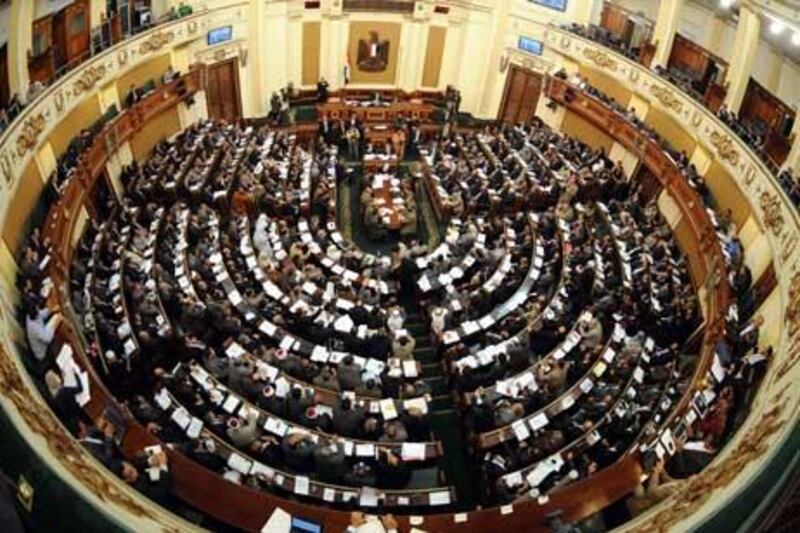CAIRO // Egypt's new President Mohammed Morsi issued a decree yesterday annulling the Supreme Court's dissolution of the Islamist-dominated parliament, the official Mena news agency reported.
"President Morsi has issued a presidential decree annulling the decision taken on June 15, 2012 to dissolve the people's assembly, and invites the chamber to convene again and to exercise its prerogatives," Mena said.
It said the decree stipulates "the organisation of elections for the chamber, 60 days after the approval by referendum of the country's new constitution and the adoption of a new law regulating parliament".
Egypt's top court made the controversial move last month, a day before the second round of the presidential election that saw the Islamist Morsi become Egypt's first democratically elected head of state.
The Supreme Constitutional Court had said certain articles in the law governing parliamentary elections were invalid, annulling the Islamist-led house.
It also ruled as unconstitutional the political isolation law, which sought to bar senior members of ousted president Hosni Mubarak's regime and top members of his now-dissolved party from running for public office for 10 years.
Mr Morsi beat Ahmed Shafiq – Mubarak's last prime minister – in the presidential election.
In the absence of a parliament, in which nearly half of the seats had been won by the Muslim Brotherhood and another quarter by hardline Salafists, the Supreme Council of the Armed Forces itself assumed legislative power.
The Brotherhood, formerly headed by Mr Morsi, accused the SCAF of seeking to monopolise power and demanded a referendum.






